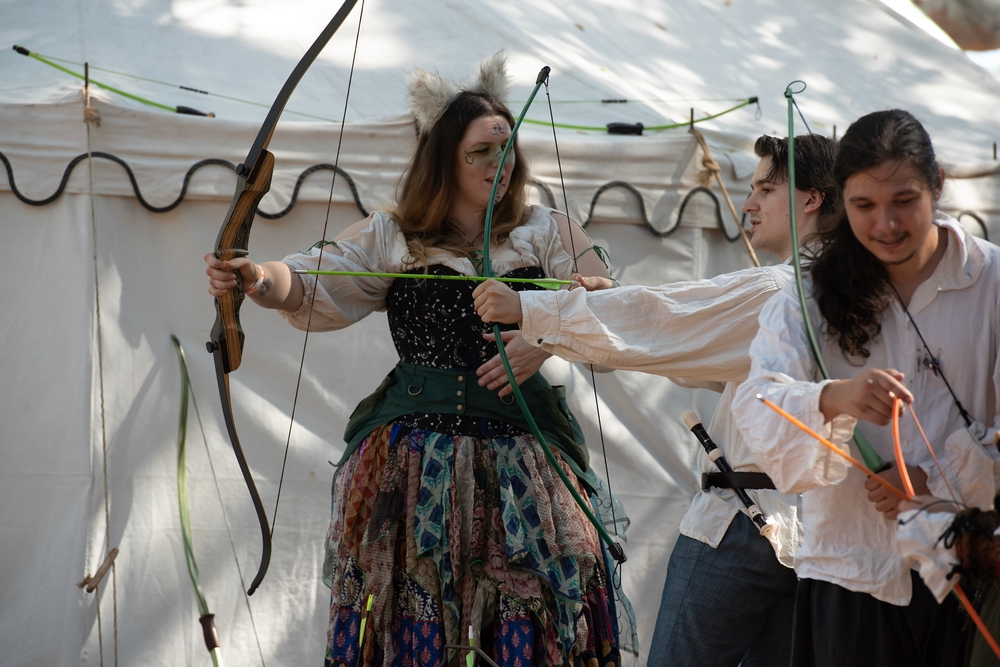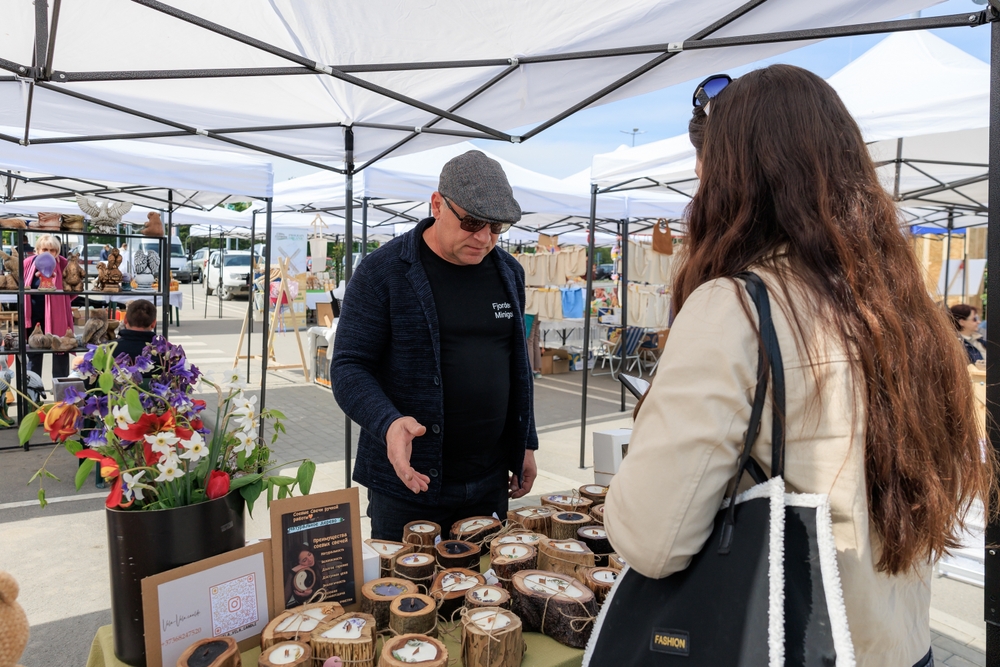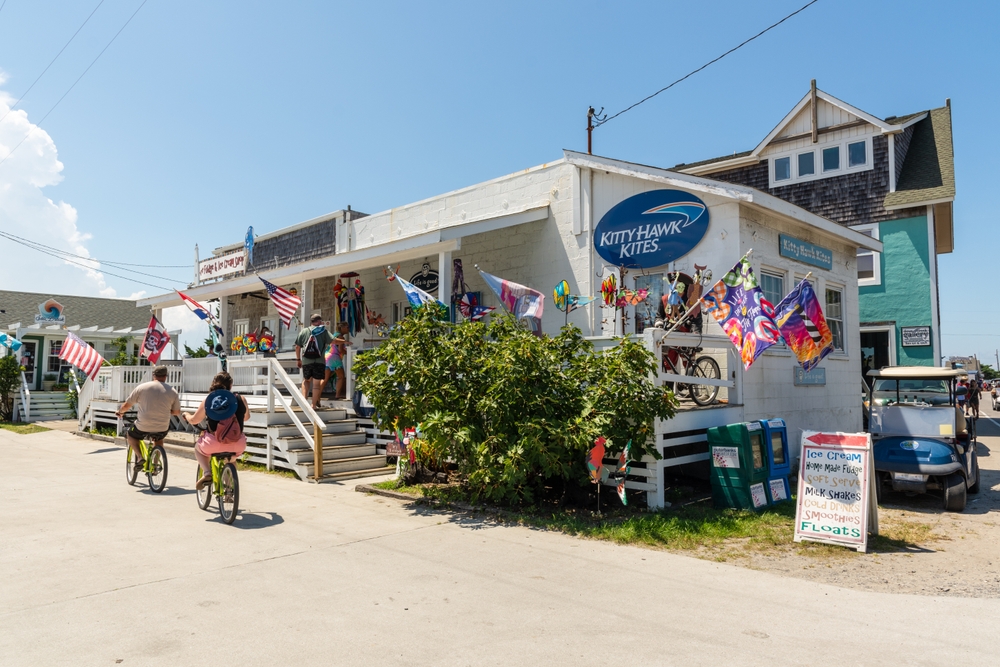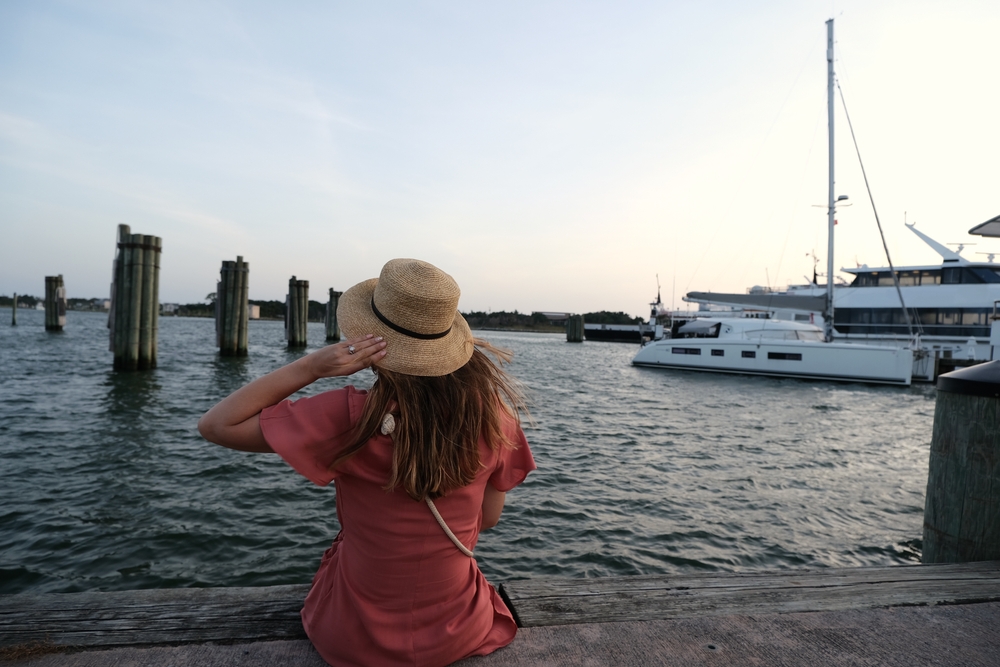They speak like Shakespeare but fish like pirates.

There’s an island off the coast of North Carolina where time forgot to update the language. On Ocracoke Island, a remote part of the Outer Banks, many locals speak in a dialect that’s shockingly close to Elizabethan English. Known as the “Hoi Toider” brogue, it sounds like a mash-up of Shakespeare, Cornwall, and a touch of Southern twang—spoken by watermen and weathered locals who’ve been here for centuries.
This linguistic time capsule exists because of centuries of isolation. Ferries are the only way in or out, and the close-knit community has protected its culture like treasure. What’s even wilder is that they’re not doing it for tourists—it’s just how they’ve always talked. If you’ve never heard a 60-year-old crab fisherman say something that sounds straight out of Macbeth, you’re in for a treat. Here are ten wild facts about this fascinating pocket of linguistic history that refuses to let the modern world dilute its voice.
1. They still say “ye” instead of “you.”

You won’t hear this in Manhattan or even mainland Carolina, but on Ocracoke, you might catch someone using “ye” in casual conversation, as reported by Brian Carlton at Bbc.com. It’s not an act or a gimmick—it’s just how things have always been. This throwback to Elizabethan English turns simple chats into scenes from a Shakespeare play. Locals might say, “Ye better go afore the storm hits,” without thinking twice.
This isn’t just old-school vocabulary; the rhythm and syntax echo a time when English was far more poetic. Linguists have studied this dialect, amazed by how words and grammar structures have been preserved in daily speech. It’s like the island hit pause on the evolution of the English language. While younger residents sometimes blend modern slang, the elders hold tightly to their verbal heritage, passing it on like a family heirloom. This isn’t a museum piece—it’s a living, breathing way of speaking that still exists.
2. The dialect is called the Ocracoke brogue.

Locals refer to their accent as the “brogue,” but linguists have named it the Ocracoke brogue to distinguish it from Irish or Scottish accents. It’s one of the few English dialects in the U.S. that has survived relatively untouched by modern influences, as stated by authors at Open Culture. Due to the island’s long-standing isolation, this unique speech pattern evolved independently from mainland American English.
The brogue sounds like a musical blend of Cockney and pirate lingo, which makes sense given the island’s history of shipwrecks, British settlers, and mariners. The cadence is sing-songy, with stretched-out vowels and quirky idioms that puzzle outsiders. In fact, some visitors have mistaken it for a made-up accent, thinking the locals are putting on a show. But for Ocracokers, this isn’t performance—it’s identity. Their brogue is an audible badge of heritage, and every syllable tells a story older than most American cities.
3. It’s mostly spoken by older generations.

The Ocracoke brogue is in danger of fading, as it’s mainly spoken by residents born before the 1970s. Young people who grow up on the island today are exposed to mainland media, schools, and slang, which gradually erode the distinct accent their grandparents grew up with. As a result, the language is aging—both in its origins and in the people who still use it regularly.
Some schools and community efforts have tried to preserve the dialect by documenting it in recordings and interviews. Linguists have even conducted audio studies to capture the nuances of the brogue before it vanishes completely. But for many locals, it’s not about preserving it in a lab—it’s about keeping their voice alive in everyday life, as mentioned by Luis Prada at Vice. Grandchildren often hear the brogue in lullabies or fishing stories, making it a nostalgic link between generations rather than just a quirky way of talking.
4. Their vocabulary includes words you won’t find anywhere else.

Words like “mommick” (to mess up), “dingbatter” (outsider), and “slick cam” (calm water) are everyday parts of the Ocracoke lexicon. These aren’t just quaint sayings—they’re crucial elements of communication on the island. Each word comes with layers of meaning and cultural significance, forming a language that’s both functional and poetic.
Some of these terms trace back to maritime traditions or ancient English roots, while others have developed purely through local experience. It’s a reminder that language isn’t static—it morphs with the environment and the people using it. When an Ocracoker uses one of these words, they’re speaking a kind of verbal shorthand that only fellow islanders understand. It’s more than charming—it’s a form of cultural encryption. Visitors often need a bit of translation, but locals wouldn’t have it any other way.
5. The island’s isolation helped preserve the accent.

Until the 20th century, Ocracoke was incredibly difficult to access. With no bridges and only boat access, residents lived in relative seclusion. This geographical isolation acted like a linguistic time capsule, keeping the dialect free from the homogenizing influence of mainland American English. It’s one of the few places where such old speech patterns could survive so long.
Even today, Ocracoke remains remote. Although there are ferries, most tourists only visit during the warmer months, and the year-round population is small and tight-knit. This allowed local culture—including its unique language—to evolve without outside pressure to conform. Unlike coastal cities that quickly absorbed modern speech and culture, Ocracoke kept its voice true to its roots. And that voice? It sounds like Shakespeare with a Southern drawl and a dash of salt spray.
6. Locals refer to themselves as “O’cockers.”

Forget “Ocracokians”—the real term used by islanders is “O’cockers.” It’s a proud, informal identity that connects people not just to the island, but to its traditions, stories, and way of life. O’cockers don’t just live on the island—they embody its values. And one of those values is staying rooted in community, language, and local lore.
Being an O’cocker isn’t about your birth certificate—it’s about how you speak, who you know, and how you treat your neighbors. If you’re born and raised on the island, you grow up with a dialect that sounds foreign to outsiders but feels like home to your ears. And if you leave the island, that accent often sticks with you, marking you forever as someone from a place unlike any other. It’s a badge of belonging, sealed by syllables that haven’t changed in centuries.
7. The brogue has been studied by universities.

Linguists from universities like North Carolina State and UNC have long been fascinated by the Ocracoke brogue. Researchers have traveled to the island to record conversations, interview older residents, and analyze the grammar and pronunciation that set the dialect apart. Their studies reveal deep historical roots and stunning linguistic preservation.
Academic interest in the brogue isn’t just about quirky pronunciation—it’s about tracing the evolution of English in the New World. Ocracoke serves as a rare case study of what happens when language is allowed to develop in isolation. Many of the findings have been published in academic journals and even featured in documentaries. While locals sometimes chuckle at being analyzed like museum artifacts, most understand the value of these efforts. They know their way of speaking is rare, and preserving it—even through science—helps ensure it isn’t forgotten entirely.
8. Storytelling keeps the dialect alive.

Ocracoke’s culture is steeped in oral storytelling. Family histories, ghost tales, fishing legends, and island myths are passed down through generations in the local brogue. These stories aren’t just entertaining—they’re verbal lifelines to a disappearing dialect. The way a tale is told often matters just as much as the content.
Elders take pride in spinning yarns with colorful phrases and rich cadence, reinforcing the rhythm and vocabulary of the brogue. Children learn early that listening is part of belonging, and repetition of phrases helps cement the language in daily use. Storytelling events and community gatherings continue to serve as cultural glue. While modern distractions compete for attention, a well-told story in the Ocracoke brogue still holds power. It teaches, entertains, and preserves—often in the same breath.
9. Some phrases are completely unintelligible to outsiders.

Tourists often walk away confused after chatting with a lifelong Ocracoke local. Phrases like “That dingbatter got mommicked by the nor’easter” leave most folks scratching their heads. That sentence, while perfectly logical to a native speaker, sounds like a secret code to everyone else.
It’s not just the vocabulary that trips people up—it’s the delivery. The musical rhythm, dropped consonants, and old-fashioned grammar turn simple sentences into linguistic puzzles. This creates a sense of in-group belonging, where language serves as both communication and cultural barrier. Visitors might feel excluded, but it’s not personal—it’s tradition. The brogue isn’t meant to impress or alienate. It’s simply the way things have always been, and understanding it requires more than a weekend visit. You have to earn your way in by listening, learning, and respecting the rhythm of the island’s voice.
10. The dialect is slowly disappearing—but not without a fight.

Despite its resilience, the Ocracoke brogue is under threat from modern influences. Tourism, media, and outside migration have diluted the island’s cultural distinctiveness. Kids are more likely to speak with a standard American accent, especially when they leave for school or work on the mainland. But locals aren’t giving up without a fight.
Community groups, museums, and storytellers are working to record and preserve the dialect for future generations. Projects include audio archives, educational programs, and even performances that showcase the brogue in all its quirky glory. While it may never return to its full strength, it’s not vanishing quietly. The island’s voice still echoes through its storytellers, fishermen, and elders. As long as there are O’cockers who remember, the sound of Shakespearean English spoken with a Southern twang will live on by the sea.
